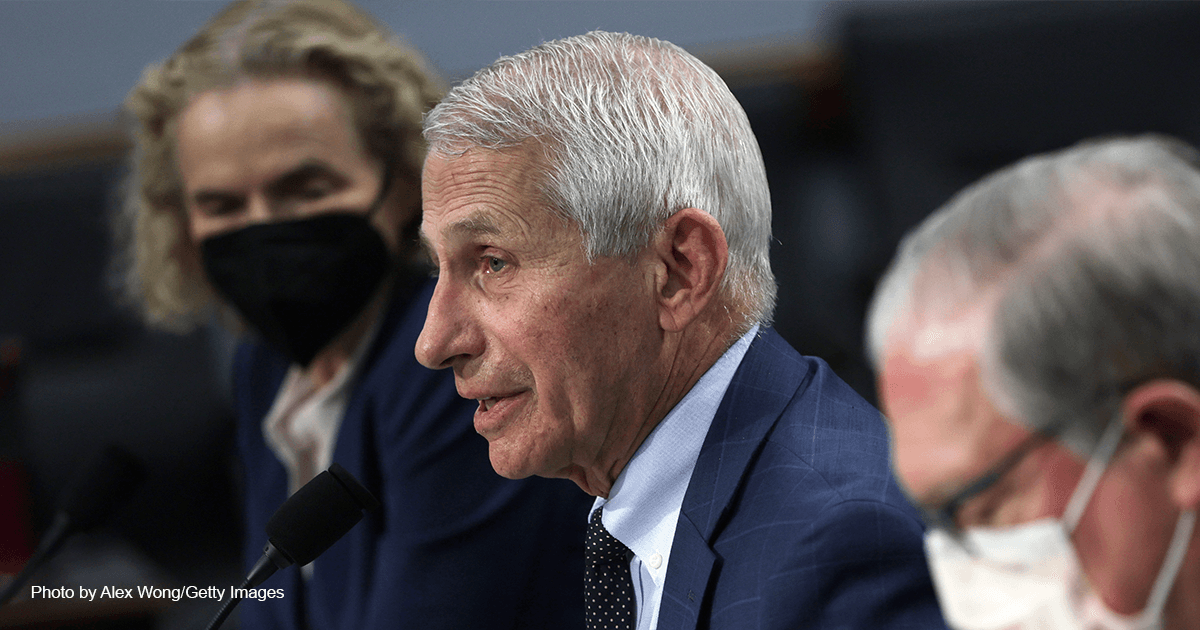
Every year, the National Institutes of Health awards $30 billion in taxpayer-funded grants, but federal scientists — including Dr. Anthony Fauci — have also received tens of thousands of royalty payments, often from the very companies petitioning for those grants. A handful of Republican senators have demanded federal bureaucrats answer concerns about this potential conflict of interest.
A Freedom of Information Act request by the federal government watchdog OpenTheBooks.com found 22,100 separate royalty payments totaling $134 million made to almost 1,700 NIH scientists between 2009 and 2014. As robust as that sounds, it’s only the tip of the iceberg. The NIH has yet to disclose another 1,800 pages of grants covering 2015 to 2020. Researchers estimate grants come to $350 million over 10 years.
The payments, for inventions the scientists often made while employed by the federal government, come in even as they decide whether those companies receive lucrative federal grants.
“I think the pandemic has exposed so much capture by Big Pharma of our federal health agencies. There’s a lot of corruption going on there,” said Senator Ron Johnson (R-Wis.) on Tuesday. “We need people that work for government to be looking out for the people’s interest, not their own personal interests. And when you’re paying royalties, particularly drug [companies] or technologies, that completely corrupts the process.”
Johnson led a group of five senators in demanding the NIH answer whether these payments may have influenced which companies received money. “We believe that the American taxpayer deserves to know … whether any relationship exists between federal grants awarded by NIH and royalty payments received by NIH personnel,” they wrote last Wednesday to the Acting NIH Director Lawrence Tabak. “Americans deserve greater transparency,” they wrote, about “the degree to which NIH’s leadership — already among the highest-paid individuals in the federal bureaucracy — has benefited from this ‘hidden’ revenue stream.”
Public health agencies, which came under massive public backlash during the COVID-19 pandemic, face increased congressional scrutiny.
“Right now, I think the NIH has a credibility problem,” said Rep. John Moolenaar (R-Mich.), as he confronted Tabak last month. “The idea that scientists may be benefiting financially from the work they’ve done at NIH, that creates to me the appearance of a conflict of interest.” Tabak pointed out that no scientist who receives funding would be in a decision-making process, because “we separate out those functions” due to the agency’s “significant and substantial” firewalls.
But Fauci, the director of the National Institute of Allergy and Infectious Diseases (NIAID), received 23 royalty payments over five years. Then-NIH Director Francis Collins received 14 royalty payments during the same time frame. (OpenTheBooks also exposed the fact that Fauci is the highest-paid federal employee, making $456,028 in base salary in 2021.)
“I’m going to describe it as kickbacks or under-the-table money coming … from drug companies,” said Family Research Council President Tony Perkins during Tuesday’s episode of “Washington Watch.”
The Biden administration has become more secretive than its predecessors. Unlike previous disclosures, the Biden administration redacted the amount of each royalty payment and which company made the payments, making it impossible to assess whether scientists engaged in unethical grant-making.
“NIH is essentially telling you, the taxpayer, to pay up and shut up,” said Adam Andrzejewski, the founder and CEO of OpenTheBooks. “Today, NIH is a revolving door of tens of billions of dollars in government grant-making coupled with hundreds of millions of dollars in private — non-transparent — royalty payments. There needs to be a lot more sunshine on this potentially unholy alliance.”
The prohibition on receiving bribes is one of the best-established principles of the Bible. The Lord warned rulers to “take no bribe, for a bribe blinds the discerning and perverts the words of the righteous” (Exodus 23:8; Deuteronomy 16:19). The Psalmist denounced those “whose right hands are full of bribes” (Psalm 26:10), and the Book of Proverbs warns that those who take bribes overthrow justice (Proverbs 29:4).
Senator Johnson was joined in his letter by Senators Rand Paul (R-Ky.), Josh Hawley (R-Mo.), James Lankford (R-Okla.), and Rick Scott (R-Fla.) — all five of whom are members of the Senate Committee on Homeland Security and Governmental Affairs (HSGAC). Federal law requires agencies to “submit any information requested” by any five members of that committee.
The letter asked NIH officials to furnish an answer no later than next Friday, June 17, by 5 p.m. “We have to end the practice,” Sen. Johnson told Perkins.
“We’ll get him back on when he gets answers from the NIH,” Perkins promised his listeners.
















